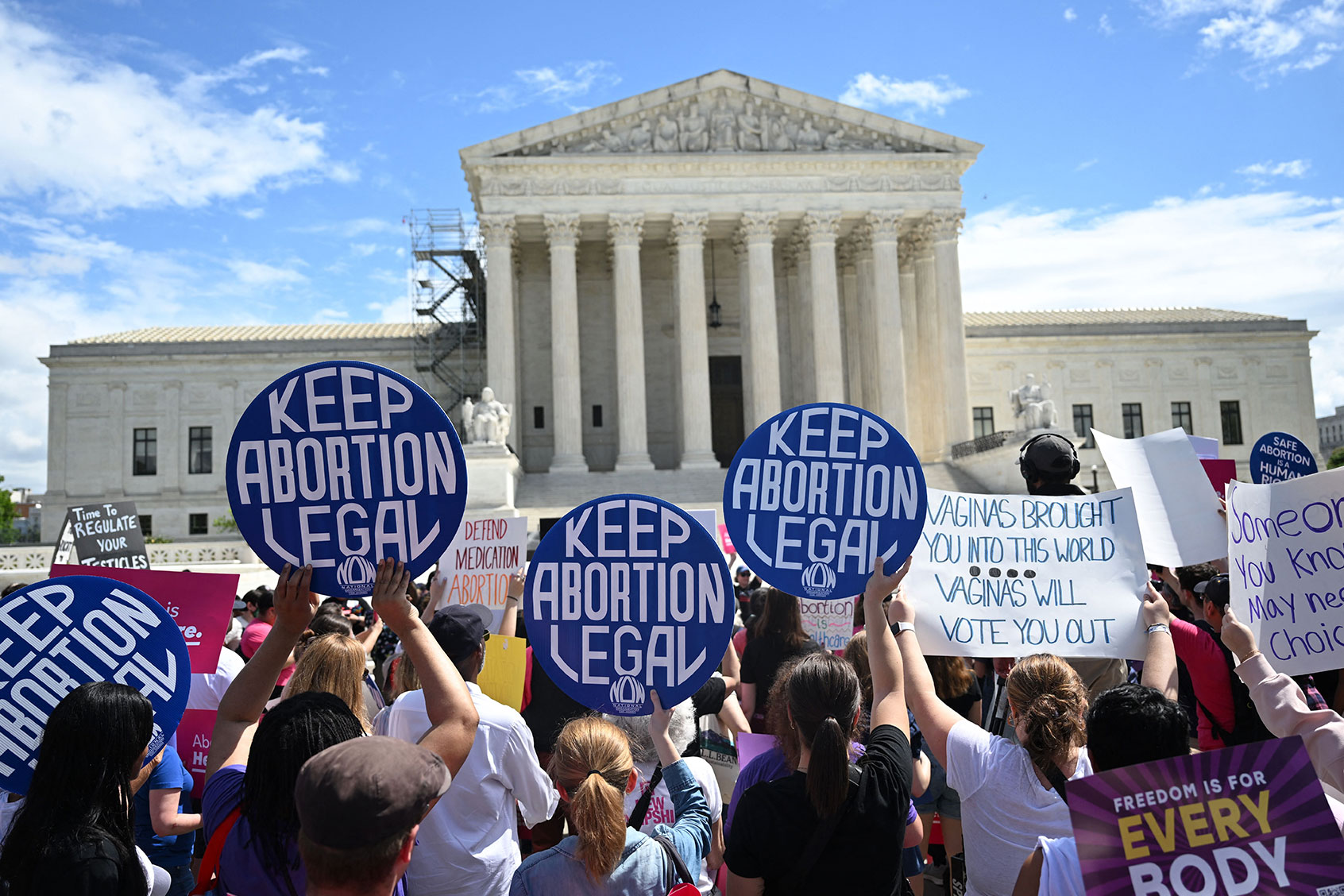On Tuesday, the Supreme Court announced that it might need until the end of this week to decide the fate of mifepristone, a drug that comes in the form of a pill used by millions to terminate early pregnancies. Their ruling could result in the ban of the drug, which would mean that medication abortions involving mifepristone would be de facto outlawed in the United States. Currently, medication abortions involving mifepristone account for more than half of all abortions performed in the United States.
Hence, the landmark case has far-reaching implications for abortion rights, as well as determining whether individual judges have the authority to impose their decisions against the will of federal agencies.
The Supreme Court jurists initially said their decision would be ready by Wednesday April 19, but on Tuesday, explained that they will need more time. Until then mifepristone will remain available.
There are several possible explanations for the delay, although it is likely that it indicates that the judges are not unanimous in their opinion, according to The Washington Post. When judges request delays in cases like this, it is often because dissenters want more time to draft their opinions or because behind-the-scenes negotiations are occurring to develop a consensus.
Earlier this month, mifepristone was banned by Trump Judge Matthew J. Kacsmaryk of the U.S. District Court for the Northern District of Texas, who on April 7th aligned with an anti-abortion group called the Alliance for Hippocratic Medicine in their crusade against the abortion pill. The right-wing group pushes a discredited conspiracy theory alleging that the initial approval by the Food and Drug Administration (FDA) was based on incomplete data. Mifepristone is a safe drug that has been available for over 20 years, with scientists and doctors overwhelmingly agreeing about its safety. In ruling that the FDA had acted illegally in approving it and thereby banning it, Kacsmaryk used right-wing activist jargon instead of medical terminology, ignored the majority of scientific studies on mifepristone, and incorrectly stated that medical abortion is unsafe (patients need hospitalization in fewer than one percent of cases).
Kacsmaryk’s ruling did not remain uncontested for long. Shortly after it was announced, the US Court of Appeals for the Fifth Circuit partially overturned his decision by pointing out that the plaintiffs’ challenge to the FDA’s process in 2000 was unconstitutional. On April 13, an appeals court blocked the part of the ruling that struck down the FDA’s 2016 update to the drug, which stated that it was safe to use up to 10 weeks of pregnancy. On the following day, President Biden’s administration filed an emergency application asking the U.S. Supreme Court to rule on the case.
Want more health and science stories in your inbox? Subscribe to Salon’s weekly newsletter The Vulgar Scientist.
Speaking to Salon earlier this week, David S. Cohen, a professor of law at Drexel Kline’s School of Law, explained that there are several options now for the Supreme Court.
“We’re waiting to see what the Supreme Court does,” he said, adding that the court could “lift the stay and let the Fifth Circuit decision take effect,” which would mean mifepristone is still approved but could be subjected to the restrictions that existed in place in 2016. In that scenario, “the complication being with the states that signed on to the Washington lawsuit, and we don’t know if the Supreme Court is going to say anything about that because it technically doesn’t have that case before it.” Cohen was referring to a lawsuit in Washington state filed by 18 Democratic attorneys general which challenges the FDA’s authority to regulate mifepristone in case FDA approval is taken away.
“Then you’ve got the other side where the Supreme Court could say, ‘we are going to keep the stay in place while the Fifth Circuit appeal plays out,'” Cohen said. “They could say, ‘we’re going to keep the stay in place for the entire litigation and let the case go back to the district court, to go to the full trial.'” If the Supreme Court decides not to take the case, mifepristone access might wind up being limited anyway due to the inevitable logistical complications the legal procedures would cause.
By contrast, if the Supreme Court sides with Kacsmaryk, it would directly contradict all prior legal precedent regarding the FDA. Courts have consistently ruled that the FDA alone has the latitude to decide if and how to enforce its own statutes. Perhaps more significantly, Kacsmaryk is the first judge in American history to claim the authority to single-handedly pull a drug from the market — district courts do not have the power to unilaterally ban drugs.
As Salon’s Amanda Marcotte recently pointed out, if Kacsmaryk’s decision stays in place, it will not actually make it impossible for women to have safe medical abortions, as other pills will still be available; instead it will make them more painful. Marcotte described Kacsmaryk’s history of describing people who support intercourse outside of married procreation-oriented sex with the term “sexual revolutionary,” and argued that Kacsmaryk’s decision was “rooted in a deeply sadistic urge to inflict pain on other people for having very normal, natural, and universal desires, such as the desire to have sex without making babies.”
Read more
about mifepristone and the Supreme Court:


